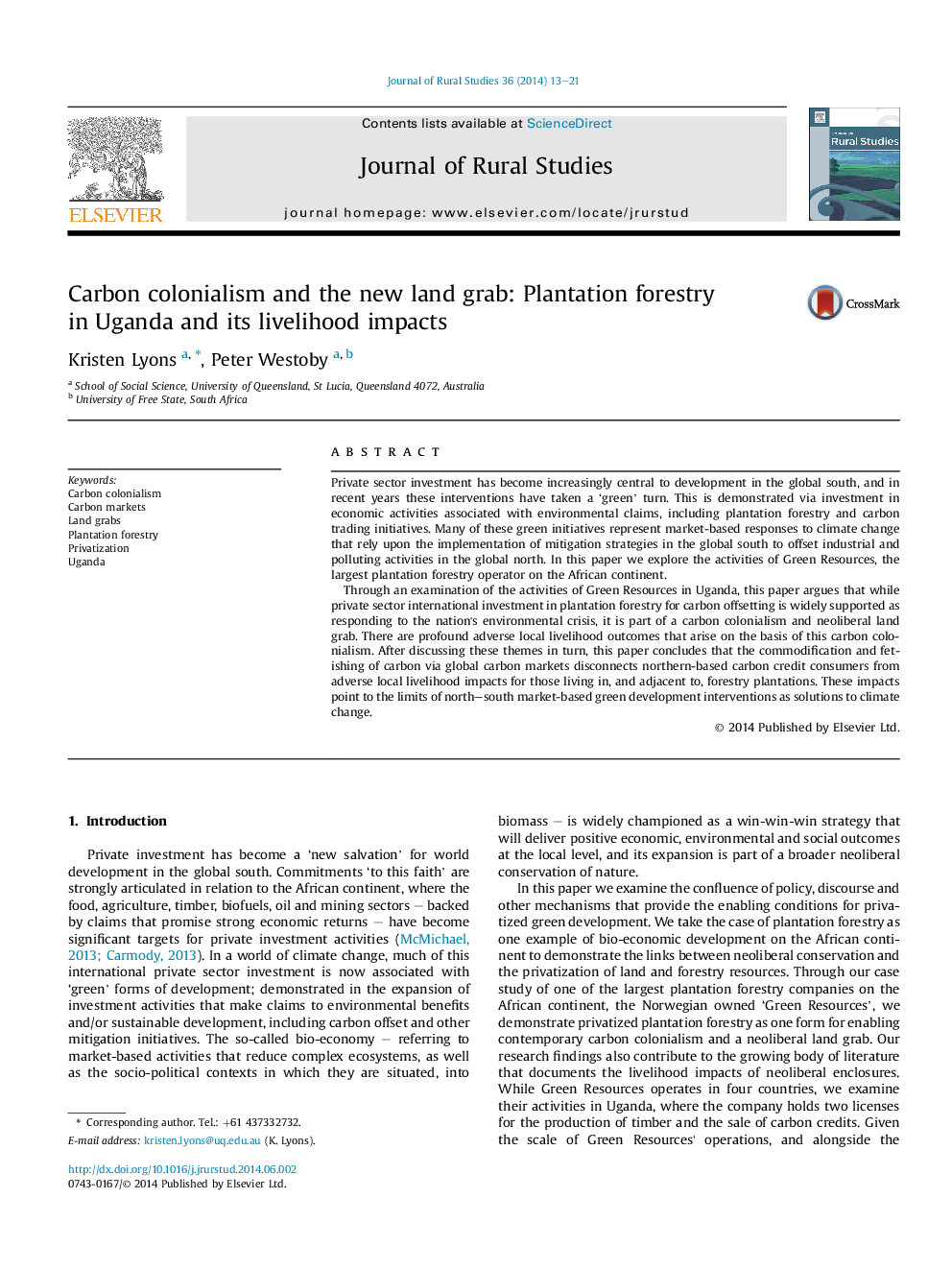| Article ID | Journal | Published Year | Pages | File Type |
|---|---|---|---|---|
| 6545714 | Journal of Rural Studies | 2014 | 9 Pages |
Abstract
Through an examination of the activities of Green Resources in Uganda, this paper argues that while private sector international investment in plantation forestry for carbon offsetting is widely supported as responding to the nation's environmental crisis, it is part of a carbon colonialism and neoliberal land grab. There are profound adverse local livelihood outcomes that arise on the basis of this carbon colonialism. After discussing these themes in turn, this paper concludes that the commodification and fetishing of carbon via global carbon markets disconnects northern-based carbon credit consumers from adverse local livelihood impacts for those living in, and adjacent to, forestry plantations. These impacts point to the limits of north-south market-based green development interventions as solutions to climate change.
Related Topics
Life Sciences
Agricultural and Biological Sciences
Forestry
Authors
Kristen Lyons, Peter Westoby,
